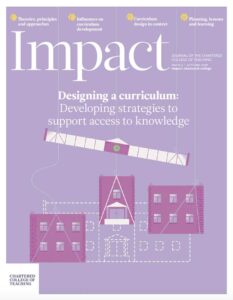A reflection on modern languages pedagogy and how teachers might engage with research
Written by: Steve Smith

7 min read
The context of modern languages teaching
It is easy to argue that modern language teaching in English-speaking countries is in crisis. In England, the supply of advanced-level linguists has dwindled rapidly since the 1990s, university language departments have closed and less than half of all secondary students take a language at GCSE (Tinsley and Doležal, 2018). It is in this context that in 2016, the Teaching Schools Council (TSC) published the Modern Foreign Languages (MFL) Pedagogy Review, which put forward a range of recommendations for improving languages provision and teaching. The review raises not only a number of important methodological issues for language teachers, but also general questions about why all teachers should engage critically with research.
What is the TSC?
The TSC is a national body made up of 20 members whose aim is to lead and help shape the work of over 800 Teaching Schools (those that have been nationally recognised for their capacity to support and he
Join us or sign in now to view the rest of this page
You're viewing this site as a guest, which only allows you to view a limited amount of content.
To view this page and get access to all our resources, join the Chartered College of Teaching (it's free for trainee teachers and half price for ECTs) or log in if you're already a member.
This article was published in September 2018 and reflects the terminology and understanding of research and evidence in use at the time. Some terms and conclusions may no longer align with current standards. We encourage readers to approach the content with an understanding of this context.
3.5
2
votes
Please Rate this content
Subscribe
Please login to comment
0 Comments
Oldest
Newest
Most Voted
Inline Feedbacks
View all comments










